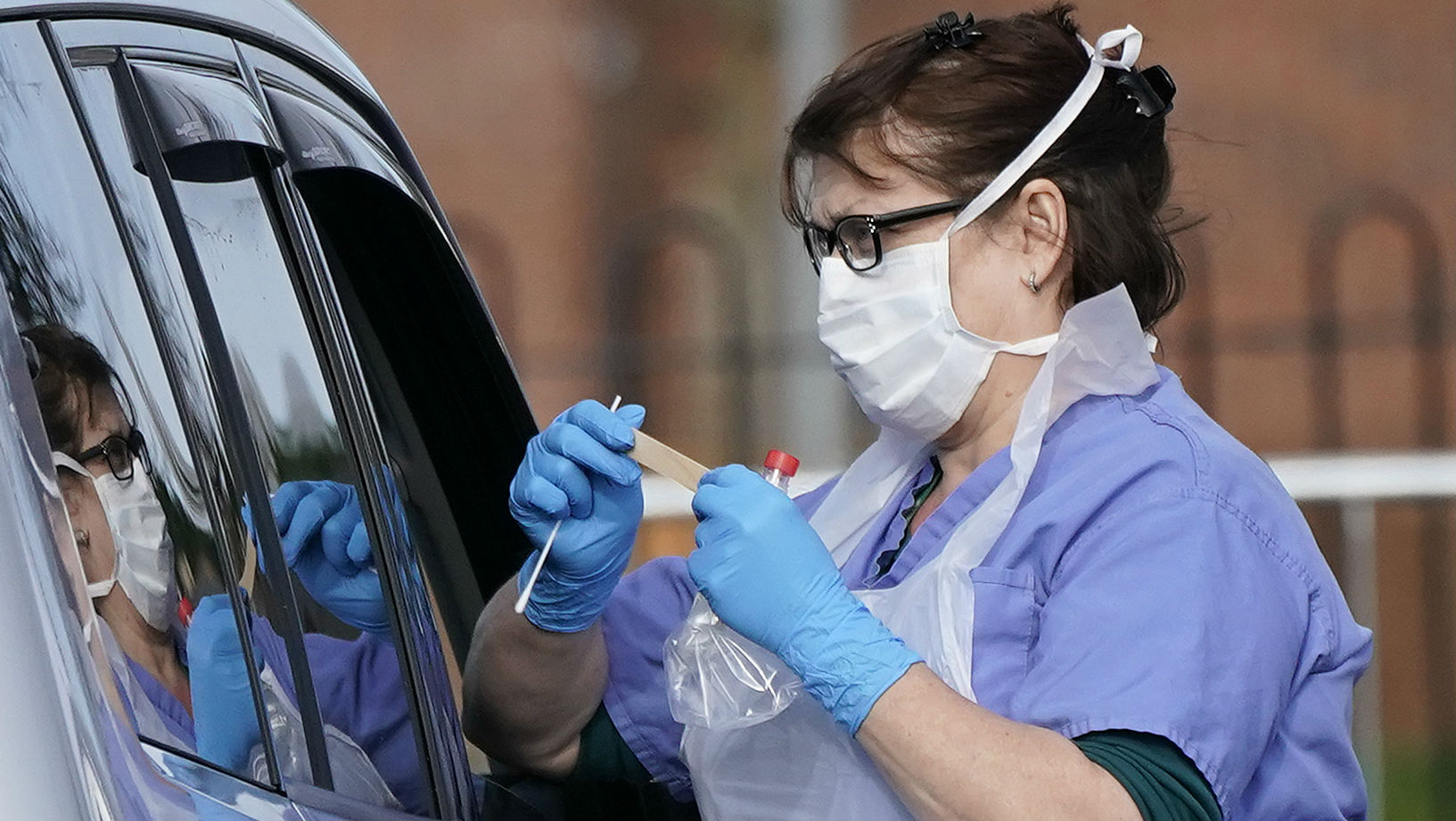When is coronavirus expected to peak in the UK and why?
Easter may mark the moment that lockdown measures bring fall in infection rate

A free daily email with the biggest news stories of the day – and the best features from TheWeek.com
You are now subscribed
Your newsletter sign-up was successful
Health Secretary Matt Hancock indicated on Friday that Britain’s coronavirus death rate could peak over the Easter weekend, before rowing back on the prediction just hours later.
When asked about reports that the death rate could peak on Easter Sunday, Hancock told Sky News: “I defer to the scientists on the predictions that they make. I’m not going to steer you away from that. I think that is one perfectly possible outcome.”
Later, he said that his answer had been “over-interpreted”, but added that a peak on 12 April – this Sunday – would be the kind of timescale that might be expected if social distancing measures were working effectively.
The Week
Escape your echo chamber. Get the facts behind the news, plus analysis from multiple perspectives.

Sign up for The Week's Free Newsletters
From our morning news briefing to a weekly Good News Newsletter, get the best of The Week delivered directly to your inbox.
From our morning news briefing to a weekly Good News Newsletter, get the best of The Week delivered directly to your inbox.
So when could we see the virus peak?
Initially, on 12 March, England’s chief medical officer Chris Whitty said that he expected the UK to reach the peak of the pandemic in about 10 to 14 weeks. The Sun says that would have meant the number of deaths would “hit the UK hardest in the May half-term holidays”.
Boris Johnson then placed the UK on lockdown on 23 March, with some restrictions expected to last at least six months before life returns to normal.
A couple of days later, Whitty’s deputy chief medical officer, Jenny Harries, said they hoped the peak would be reached in “two to three weeks” if people followed the government rules on cutting down social interaction – placing the peak around Easter.
A free daily email with the biggest news stories of the day – and the best features from TheWeek.com
“That means the peak will be pushed forward, but the height of it will be lower and we can manage all those who need hospital and health care safely through our NHS,” she said during a live Q&A on the parent web forum Mumsnet.
The BBC reports that the number of people dying in hospital with coronavirus is doubling every few days, but the figures for confirmed cases and hospitalisations are slowing down.
The daily death total will also plateau at some point, the broadcaster adds, but scientists have warned we could still see record highs in the coming days.
The delay in registering deaths means that when we do pass the peak, we may not see it in the death figures for a few days, the BBC adds.
–––––––––––––––––––––––––––––––For a round-up of the most important stories from around the world - and a concise, refreshing and balanced take on the week’s news agenda - try The Week magazine. Start your trial subscription today –––––––––––––––––––––––––––––––
What will cause the peak?
In essence, the virus death toll will reach its peak and then slow down when the lockdown measures currently in force have had the chance to make their impact visible on the data.
Social distancing was introduced before the lockdown, so there is some hope that the effect of those measures may start to show in the coming weeks. Modellers at the London School of Hygiene and Tropical Medicine estimate that for every four people we met or touched before lockdown, we are meeting only one now.
They calculated this could reduce the ability of the virus to reproduce by 75%.
Michael Gove, the minister for the Cabinet Office, has said that the peak of the crisis is “not a fixed point, a date in the calendar”, The Guardian reports, but “is something that all of us can affect by our actions”.
Jonathan Van-Tam, deputy chief medical officer for England, echoed this, saying the timing of the peak of the outbreak depended on people sticking to instructions to stay at home.
Hope has also emerged from Spain and Italy in recent days, where citizens have been living under severe restrictions for more than three weeks.
The daily number of coronavirus deaths fell in Spain for a fourth consecutive day today, boosting hopes the country has passed the outbreak’s peak.